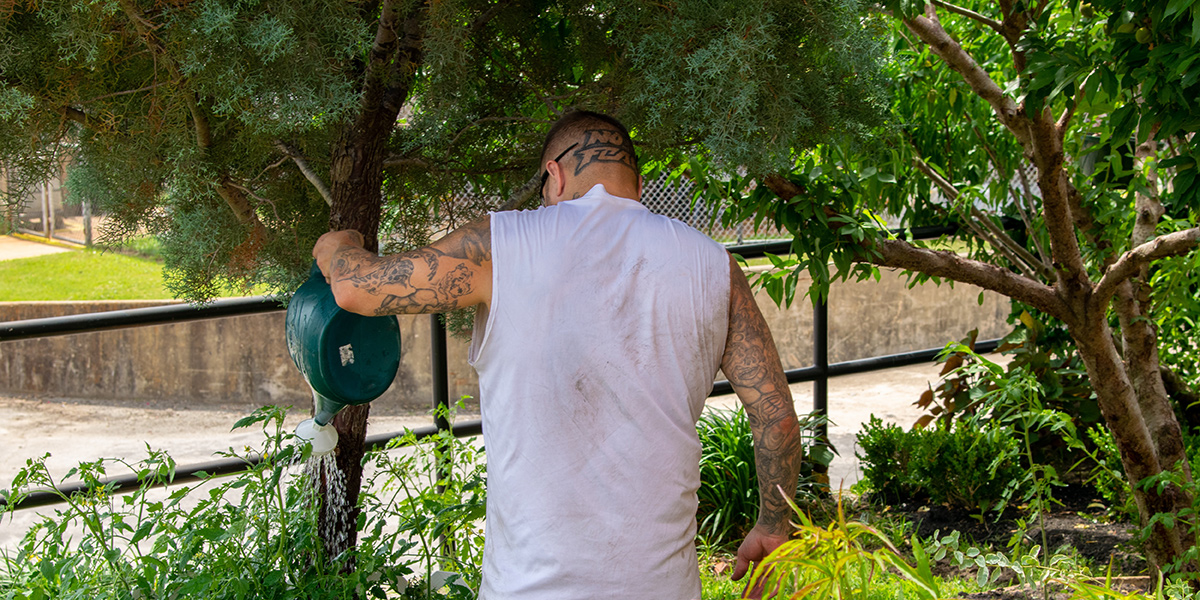The Lee College Foundation has received a $750,000 grant from the Greater Texas Foundation and Trellis Foundation to launch a new program to help incarcerated students complete their college degrees and certificates once they are released from prison.
The "Pathways from Prison to Postsecondary Education" project offers individuals leaving the justice system a chance to pursue educational opportunities at the college's Baytown campus that will lead to living-wage jobs.
"This trailblazing program builds on the success of our Huntsville Center which has been educating incarcerated students for nearly 60 years," said Dr. Lynda Villanueva, Lee College president.
With 1,200 students at nine Texas Department of Criminal Justice units, the Lee College Huntsville Center is the largest prison education program in the state and the second largest in the country.
"The data is clear about the positive results of offering higher education opportunities for incarcerated students," said Trellis Foundation's Executive Director Kristin Boyer. "Ensuring that support continues through the completion of a degree or credential is the ultimate goal. We're excited to support the important collaboration between Lee College Huntsville Center and the Lucile Plane State Jail to expand these resources in the Gulf Coast region."
"Pathways from Prison to Postsecondary Education" will encompass a range of educational opportunities and support tailored to the unique needs of incarcerated and formerly incarcerated individuals. Program components include:
- Expanding access for students at Plane State Jail to receive stackable credentials which will be transferable to Lee College's Baytown campus after release. Enrollment at Plane State is 161 – the highest since 2020 when the Huntsville Center began offering technical programming with logistics and horticulture, as well as an associate of applied science degree in business management.
- Placing a new reentry specialist at the Baytown campus who will provide holistic support services and case management for program participants.
- Providing formerly incarcerated program participants critical wraparound services that will be delivered through the Lee College Foundation and Student Resource and Advocacy Center. They include housing, childcare, mental and physical health care and transportation.
"We know access to higher education degrees and certifications disrupts the cycle of generational poverty for many of our students. Lee College and the Lee College Foundation are committed to serving all students with quality educational opportunities that meet their unique needs as learners," said Selah Tacconi, executive director, Lee College Foundation and chief advancement officer. "The ability to earn a living wage after being released from incarceration is often the key to avoiding recidivism for our formerly incarcerated students. We are committed to forging the partnerships necessary to continue our educational programs behind the prison walls in Texas."
And this strategy is paying off. According to the National Institute of Justice, nearly 44% of formerly incarcerated individuals released return before the first year out of prison. In Texas, the three-year recidivism rate is just over 20%, among the lowest in the country. At Lee College, the most recent data says 94% of Huntsville Center's prison education program students obtain employment and avoid recidivism after reentering society.
"Justice-impacted individuals are critically underserved in higher education," said Sue McMillin, president and CEO, Greater Texas Foundation. "Our mission is to ensure all Texas students, regardless of background, have access to, and succeed in, postsecondary education. Lee College has been a pioneer in providing higher education in Texas prisons for decades. We are so pleased to support them as they expand their reach at their Baytown campus."

